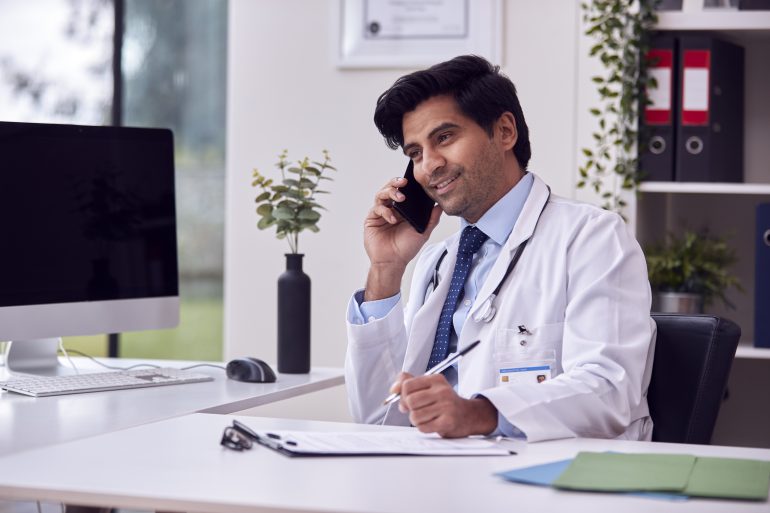One in three patients noticed a negative change in their primary care doctor accessibility in 2022, as the Netherlands is facing a shortage of GPs. A young woman from Amsterdam explains: “It’s particularly difficult to schedule an appointment with my GP during flu season. My practice has limited daily “call back” options, so it is not always possible to reach it by phone the same day. When they scheduled a phone consult with the GP for me, the assistant did not specify the time, so I had to keep my phone close at hand all day.”
Difficulties in making appointments
In October 2022, the lobby organization Patients’ Federation Netherlands surveyed the accessibility of Dutch family doctors. 88% of the surveyed participants wanted to make an appointment with their primary care doctor in the past year. More than half of them did not notice any change in the accessibility of GPs. However, one in three patients noticed – mostly negative – changes. The situation varies greatly per practice. Some people experienced difficulties reaching their practice by phone and making an appointment. Others complained about long waiting times before they could be seen. Some patients struggled to schedule an appointment with their specific doctor. “If I want my own GP, I have to make an appointment three months in advance,” says one of the survey respondents, while another one mentions being on hold longer than before when calling the clinic.
More than half of the patients managed to schedule an appointment the same or the next business day and 29% within two to three business days. Some people had to wait four days or longer. “If I call the doctor, it’s already so bad that it really can’t wait any longer. For or five days is too long,” says one of the respondents. Other patients said that they did not mind waiting for a few days in situations that were not life-threatening.
Even though some patients complained about a decrease in accessibility of their primary care physician, a vast majority of the people surveyed said they managed to get an appointment within a reasonable time. Moreover, people were generally satisfied with the outcomes of their appointments. They found the doctors friendly and their complaints were taken seriously.
Looking up the symptoms
The primary reason for making an appointment with the general practitioner was health complaints. Some people also went to see their doctor for a check-up, to consult about medication, or to get a referral. One in five participants looked up their symptoms on Thuisarts.nl or another website in search of a solution to their health problem before making an appointment with the family doctor. Sometimes the GP practice explicitly asked the patients to use Thuisarts.nl first. Thuisarts.nl is an independent website for health information, developed and maintained by the Dutch College of GPs. There is also an English version of the website available (GPinfo.nl), containing a selection of topics from the Dutch version.
According to the survey, appointments with the GP mostly take place at the practice (77%). Phone consultations are, however, still in place. Lots of patients are happy about the possibility of contacting their doctors digitally as well. Most digital contact involves exchanging messages over email or chat; video calls are rarely done. Some patients complained about not getting a reply to their emails or found digital contact with the practice ineffective. However, the Patients’ Federation Netherlands advises increasing the possibilities for online contact as one of the solutions to the increasing pressure on family doctors.
GP practices are full: no new patients accepted
According to the registry of general practitioners and GP practices compiled by Nivel, an organization that researches healthcare, there are approximately 12,000 registered GPs in the Netherlands. As Dianda Veldman from the Patients’ Federation points out, the survey clearly shows the increasing pressure on primary care. Fortunately, general practitioners still manage to provide care to almost everyone who needs it, especially in emergencies.
One of the challenges that the organization identified is the possibility to change one’s primary care provider. Many GPs do not accept new patients, as their practices are full. This means that it is impossible for people moving into a new town to sign up with any GP. The federation advocates for better cooperation between GPs to create a network for people who (temporarily) do not have a family doctor.
Written by Zuzanna Kuffel
